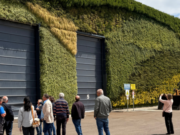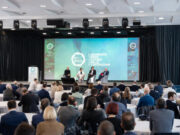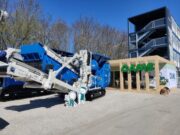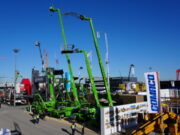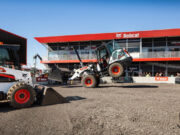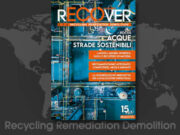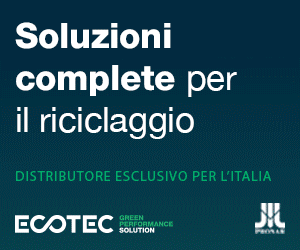
On 17th October a CECE delegation including CECE President, Vice-President, advocacy and technical team met with Director-General Timo Pesonen to discuss strategic areas for the construction equipment sector.
Timo Pesonen, leading the Directorate-General for Internal Market, Industry, Entrepreneurship and SMEs (DG GROW), shares CECE’s concern regarding the lack of skilled workforce in the construction field. Moreover, DG Pesonen expressed European Commission’s preparedness to work towards ambitious policy that would intensify the European industrial base.
During the meeting CECE President Enrico Prandini (Komatsu, UNACEA) together with CECE Vice-President Niklas Nillroth (Volvo, SACE) presented their respective companies and outlined the challenges of our sector. Construction machines manufactured in Europe are sophisticated, intelligent, safe and becoming autonomous. The application of new technologies reduces the environmental impact of the sector. In order to stay competitive on the global stage, Europe needs a forward-looking industrial strategy which encompasses the entire construction value chain.
Barbara Bonvissuto, Head of Unit, Advanced Engineering and Manufacturing Systems at DG Grow discussed with the CECE delegation the main policy files, such as revision of the Machinery Directive and future proposal for regulation on harmonised road-circulation requirements for NRMM. EU-US dialogue on conformity assessment and standards were also among reviewed topics. CECE presented DG Pesonen the CECE-AEM Joint Statement on Free Trade and Against Tariffs. CECE together with AEM, American Association of Equipment Manufacturers, call on the European Union and the United States to work diligently together to defuse the tensions, abandon all plans by the United States of imposing these tariffs and avoid escalations leading to the imposition of additional tariffs by the European Union.
CECE thanked DG Pesonen for his responsiveness towards construction equipment sector’s challenges and stressed that the dialogue between the European institutions and the industry is key for the future of the construction equipment sector.








